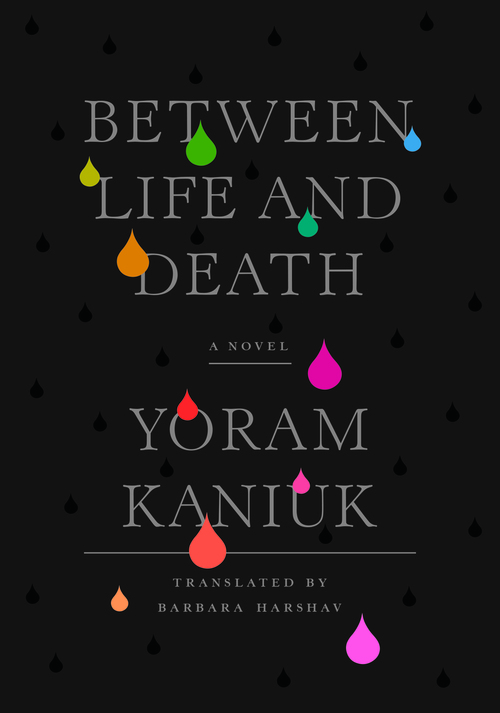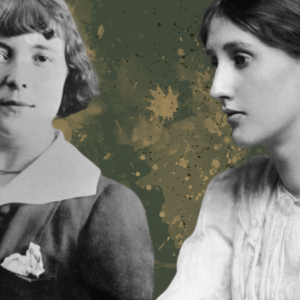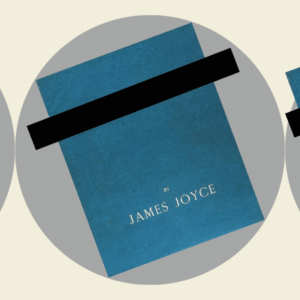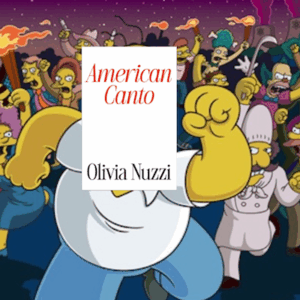After these things—after disease and after death and after pain and after laughter and after betrayal and after old age and after grace and love and after a foolish son the heaviness of his mother and a woman of valor who stayed with me in beauty in the abyss—after all that I woke up into a half sleep and stayed there four months. And it was bad and it was good and it was sad and it was lost and it was a miracle and it was what it was and it wasn’t what it wasn’t and it could have been and I recalled it was night. A night sealed up in its night. I spent it in bad dreams and woke up dazed with sleep, I was healthy, in my house at 13 Bilu Street, and suddenly I recalled that at night I’d dreamed of screwdrivers. I had no need of a screwdriver and so I didn’t search and I didn’t find it, but in the place where the screwdriver could have been if there had been one, I found an old map of Tel Aviv, and since the map was already there, I left it and went to drink coffee and I ate a croissant they call corasson here and returned home, to the map, and thought of looking for the street where I lived. I spread the map on the table and wandered around with my finger until it landed, but not on Bilu Street, where I live, and not on the nearby corner of Balfour and Rothschild Boulevard, where I lived my first three years, but on the Arlozorov corner of Eduard Bernstein, near the place where I really grew up. Naturally, I had no choice but to go to the corner of Arlozorov and Bernstein, where, except for the days when I walked in the sands, I passed by for eight years, ten months a year, almost every morning, walking from my parents’ house to The Model School and back—a distance in which I could, if I wanted, get to the moon.
At the street corner, which was ugly even back then, stood the wretched house where Agu lived. He was two years younger but older than me, and was taciturn, scorned, solitary, and full of hate. I think he stayed in third grade for three years, or maybe that was somebody else, and he had sparkling brown eyes and he was killed in the war in a battle for Neve Samuel soon after he ran into me in the dining hall of Kibbutz Kiryat Anavim, when he recalled who I was even before I reminded him where we knew each other from. We were then digging graves before the battles, and all you had to do was return from the battle and bury, and since only I knew who Agu was I was asked to write his name in a florid hand, but I didn’t know his real name, only his nickname, Agu, and I didn’t know if, when he was born, he had even had a name, and in fact I have no idea if he was even born, and I recall him as somebody who had been here forever, maybe because the Muslim graveyard flowing down to his house on the corner of Arlozorov Street was so close.
Agu’s father had a bicycle-repair shop on the corner of Jabotinsky, which was called Ingathering of the Exiles Street back then. The exiles didn’t manage to be gathered in, but they’ve already forgiven Jabotinsky and changed the name of the street to his name, and that’s how the names changed. His dog, Topsy, would run to The Tribes of Israel Street from the other side of Keren Kayemet Boulevard to attack the composer von Sternberg, whom he loathed. The composer would walk around dressed even on weekdays in a German hunter’s outfit and would brandish a bamboo walking stick and look frightening with his eyes shut and was married to Genia, a beautiful woman who was my first love and who brought up her son and became a nun in Lebanon. Sternberg the putz wrote a work that three people in the city could listen to without killing themselves and called it “Twelve Tribes of Israel,” after the name of his street, and Moshe my father said we were lucky he didn’t live in Meah Shearim with its hundred gates.
I used to play with the dog Topsy on the way to school, and Agu was mad at his dog for wagging his tail at me, and he was jealous of me and yelled at Topsy, but Topsy was fond of me and sensed that I liked him and waited for me every morning with his tail wagging, until one day Agu got upset and jealous and sicced Topsy on me and yelled at him to bite me. Topsy, who belonged to Agu but loved me, tried in panic to bite Agu but then was kicked and his tail drooped and his eyes raged and he whined horribly and approached me and Agu shrieked again and Topsy didn’t know where his greater obligation was and bit me because he had no choice. Poor Topsy was taken to the veterinary department for tests and I had to get twenty shots in my stomach. I went with Sarah my mother to the Strauss Clinic on Balfour Street and they’d give me a shot every week with a giant needle and after my portion of torments, we’d leave there, go down to Allenby Street, and Sarah my mother would buy me an ice cream at Shnir and call it “some consolation” for what I had gone through.
Agu’s father has been gone a long time. Not only him. All of them have gone with the wind. Even the watchmaker Yashka Silberman, who taught Stalin Yiddish, has gone, and Goldbaum, the barber from Warsaw licensed for men and women, whose wife ran away from him wearing a corset and he was afraid to run after her because of the Italian planes that were bombing and because he was wearing a gas mask and couldn’t get it off, he’s gone, too, and the shoemaker Joshua, who taught me to cut soles and spit nails in an arc into a sole, is gone, and the limping upholsterer Yashke Weisman, who was killed in an accident and his wife married her lover, and Mr. Polishuk, who dreamed of a furrier’s shop but sold falafel on the corner of Lassalle, and the upholsterer Zuska Shlinov, who was found dead in a small room at the Jordan Hotel on Ben Yehuda at the corner of Keren Kayemet Boulevard with lipstick smeared on his lips, he’s gone, too. So many people I knew have died, more dead than living are left, Bill died, Danny died, who didn’t die, Sarah my mother, Moshe my father, Ruth Olitski, Shalom Yakir, and Rina Helfand, whom I loved in fifth grade, died, and the aunts and uncles died, the disease of death came down from the sky and swallowed most of the people I knew and nothing is left. The sands at the sea, which came as far as Ben Yehuda, were shifted back because the city leaders thought they were superfluous, and the lowly huts of the Mahlul neighborhood, which looked like the Bedouin women from Jaffa who used to come sell fish their husbands caught, and the tarpaper shacks mounted on the limestone hills at the edge of the sea and smelled of saltwater and the waves lapped them and hit them, they’ve disappeared, too. The tanning factory on Hayarkon Street, which dripped black water and reeked, is gone. The Muslim graveyard was wiped out and became a national park of the Jews with the Hilton Hotel as an upside-down statement.
And here am I hemorrhaging in my head and returning from what isn’t, but before that really happened and when like an idiot I searched for a screwdriver and found a map, rain in its season fell on me, and I stood shaking from the wind blowing from the sea and I was excited, but I don’t remember why. Maybe because I grew up woven into that sea and the melody was in me. I’d sit in the dark on the veranda, back then we called it a porch, and like most of the residents of our city I’d peep in the windows of the neighbors to see how they were creating the Hebrew soldiers of the future. Years ago, long before I got sick and before I was transferred a little to the other side, years when I dreamed of growing old and dying at the sea, with the strong wind and the taste of salt in my mouth, because that was what was always here, the surest future was the sea. I thought that if I got sick, and back then I wasn’t really sick, and if I lay dying at the sea and I listened to the singing of the wind, I would love my death.
I stood at the corner of Eduard Bernstein Street and looked up. The veranda we had, the small panorama to the sea, was hidden long ago by tall buildings, and the sea was hidden by big, indescribably ugly buildings. But I can still picture on the veranda next to ours, where even now you can see a little bit of sea, the poor Lichtman maiden, may she rest in peace, standing strong and weeping like a captain on the bridge of a sinking ship, and even though she died years ago, she’s still holding the telescope she was sold by the black-market egg seller, Mr. Bein, who carried the eggs in a small splendid suitcase, always dressed in a suit and tie he said he’d brought, in his words, from Berlin—and she stands and looks out sadly at Germany, and sees those who were her parents in Berlin, and tells us, foolish children that we were, who at the age of eight were already training to establish a Jewish state that was impossible but essential in hostile regions, and getting ready to take revenge on the Nazis with slingshots and sticks—she tells us she saw what was what before they made soap of them, and every hour she takes the razor blades out of the case and shaves, and between one shave and another you can see her beard sprouting, bursting from her cheeks like flowers after the first rain, and she’d search for her father even in the fuse box and explain that he had to be someplace, so why not there, and she’d say that it was all from the Holocaust, and she missed Germany so much that she’d sing sweet lieder to the sea, though she had no voice at all, so that it would take her back, and I told my friend Amos, who would come see her beard grow, I told him she wanted to swim to Berlin, but she stayed to die in Palestine the Land of Israel, clinging like a leech to stormy regrets. For regrets gave her sweet pain, and I would cuddle up to her pain, which I almost understood, and draw it into me and it stayed in me like a guest who stays forever.
I remember the sight of the ships on the way to the port of Tel Aviv. I loved them like rocking nutshells during a storm, and I loved the whistle of the strong wind. Now I’m old and without a screwdriver, unneeded guys like me are called seniors, and I walk on Eduard Bernstein Street, with its houses, gazed at for years from our veranda at 129 Ben Yehuda and Strauss, next to the veranda of the maiden Lichtman, may she rest in peace, have already sprouted stories and newfangled Israeli architectural embellishments that turned the ruins into something to wish for.
The opera singer Giulini also died, the father of the outcast, who surprised me years later, and before he was killed in the war he saved Agu, who ended up killed himself but who wasn’t killed back then, all of us killed and were killed, and Agu and the outcast, whose name I’ve forgotten, we buried on the kibbutz at Kiryat Anavim, and Giulini, father of the outcast, no longer practices the melody of the late Dr. Mazeh Imber’s poem, “The Shofar,” and Jacob Avinoam, who called himself Blood and Fire, no longer recites Ya’akov Cohen’s poem, “in blood and fire Judah fell in blood and fire will Judah rise,” as an awful flow of tears pours down his cheeks, and our other teacher, who called himself Pure and Simple, and whose previous name was Yasha Levotinvitch, must be dead, too.
Orange trees, once the pride of Zionism, have all been cut down in the neighborhood, but one lemon tree and one chicken coop remained for a while and were the glory of Ashael’s yard, and Ashael disappeared along with the concrete cases his father would create in the yard next to the lemon tree for no visible reason, as nothing was packed in them, and for years they piled up on top of one another and broke, but they continued to be piled up because he continued to create them until they reached the top of the lemon tree and then he cut down the lemon tree, which served as a lesson to Ashael, and so when the War of Liberation broke out in 1947, he ran off to America and a few years later was called to the US Army to fight in Korea, and his mother, who said that Ashael was both her son and a substitute for her idiotic husband, who had spent all his days building concrete boxes that looked like coffins for dwarves, flew to New York in an aeroplane, today we call it a plane, and flying was a rare thing back then, and bought somebody important in city hall with money from Ashael’s father that she smuggled in in her gigantic bra, and somebody arranged papers for Ashael and released him from the war.
Near the house, right across from the calm hidden beauty where I searched for a gutter to play me the lullabies of my childhood, a little bit of sea is still open. Moshe my father would swim in it every day at exactly five in the afternoon, after most of the swimmers had already gone home, because he loved having the sea all to himself. In the spring and fall, the sea was sparkling and smooth and soft, and sometimes in the morning, on the way to school, we’d walk barefoot in the sand along the shore, and under the hewn-limestone wall, we’d take off our shoes, hang them by the laces on our shoulder, put our schoolbags on our heads like the Arab women who carry ewers of water and bundles of wood to the ovens, and we’d walk in the shallows lined with seashells, some were broken and cut our little feet, until we came to the sand dune across from the Model School.
At that same time, Moshe my father would lead his bike from the sand to the road, look at the sea sadly because on its other side was still Europe, and then ride his bike to the museum, not before pinching the bottoms of his trousers with clothespins so they wouldn’t get dirty. He always dressed properly, even when he rode his bike, dressed according to the German season, with a tie, a lot of pockets for pipes and tobacco, and the beret of a bohemian. I thought of him when I saw the rain pelting down here at the corner of Eduard Bernstein and Arlozorov. I loved the smell of the rain but those devils have killed most of the rain pipes for me, and not far from what was the school for workers’ children—Moshe my father said their parents were born apparatchiks and didn’t work a day in their lives and at most would be photographed with a hoe in a kibbutz whose name I’ve forgotten—suddenly came the death I’m trying to tell about here, since I saw a procession of black ants moving together like a swaying snake.
I don’t know today where in fact I was when everything I’ve written here happened or didn’t happen, I only remember that at the corner of Eduard Bernstein and Arlozorov I bent over to find out what the ants were carrying on their back and I saw that they weren’t carrying anything but were escorting a most splendid ant bearing a small canopy of dry grass, and under the canopy I saw a tiny tumor, snug as a king bug. Meanwhile the sky cleared and the clouds went off. At the sea, the secret bays and the natural pool weren’t yet murdered, and above the pool, cut in the limestone, was the secret cave with the canned goods and the rusks we hid in case Rommel won in Egypt and the Nazis conquered the Land of Israel and we’d make Masada in the cave, and we said that as in the poem, which Teacher Blich would recite excitedly and tearfully, we would build Jerusalem on the hill like those who mount the scaffold.
From BETWEEN LIFE AND DEATH. Used with permission of Restless Books. Copyright © 2016 by Yoram Kanuik.













